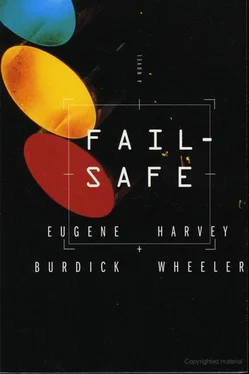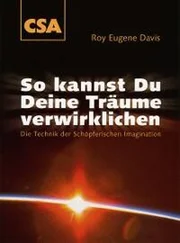Then his voice went level and was under control.
“Mr. President, some of my advisers are convinced that this ‘accidental attack’ and your phone call are a ruse,” Khrushchev said. “They want to strike back at once. I have forbidden it. After all, Soviet air space has not yet been invaded. I must tell you, however, that if your fighters are not successful in shooting down your attacking planes we will be forced to shoot down the bombers ourselves. Then we will come to an alert and will prepare our ICBMs and other retaliatory devices. We must do this to make sure that the ‘accidental attack’ is not a mask for something more serious. Your single group of bombers does not disturb me in the least. We can handle them. Your real intention I do not yet know. I will protect myself.”
“Premier Khrushchev, I understand that you must take these steps. I hope you will be able to shoot them down. But let me urge you to take no steps which are irrevocable. I give you my word that this is a mistake. But you are also aware that if you start to launch missiles I cannot forbid our forces to do the same. If that happens there will be very little left of the world.”
“I think we will be able to take care of our interests, Mr. President,” Khrushchev said and his voice was tougher.
“I want to make sure that you understand that this is an accident and to ask you to do nothing which is irrevocable,” the President said evenly.
“I understand,” Khrushchev said grimly. “Is there anything more you wish to say?”
“Yes, Premier,” the President said. “I have made arrangements for a second conference line to be established between our tactical Air Force headquarters in Omaha and your counterpart officials in the Soviet Union. If you will give permission, that conference line can be established at once.” The voice hesitated. Buck looked up. The President took a deep breath, like a tired pitcher before he winds up and throws again. “Our people in Omaha will give every assistance to your forces in shooting down our bombers should our fighters fail.”
Khrushchev was silent for a few seconds. When he spoke, the words snapped out with what Buck considered genuine rage.
“Mr. President, the forces of the USSR are perfectly capable of defending our country. We do not need or welcome your technical assistance.”
“The choice is yours,” the President said evenly. Then his voice went low, so low that Buck had to ask him to repeat the words. Looking at the President, he realized that the President was doing this deliberately. “Premier Khrushchev, I must, with regret, tell you that regardless of what you do, two of those six planes will, in all probability, be able to fight through to their target. We have new evasive devices and masking techniques, which I don’t think you know anything about. My experts tell me that two of the planes will probably hit the target.”
Instantly Khrushchev’s voice changed. “What is their target?”
“Moscow.”
The silence that ensued lasted almost twenty seconds. It was broken by Khrushchev.
“I will call you back, Mr. President, when we have seen how the fighters do. Keep that second conference line you mentioned ready for use.” His voice was opaque, seamless, pitiless, completely unrevealing of emotion. -
The President put down the phone and looked at Buck. Then he stood up.
“Let’s go out and look at the board,” he said.
He led Buck into the next room, where his special assistants were gathered before a miniature version of the Big Board in the War Room at the Pentagon. None of the assistants turned to look at the President. They stood up, but they kept their eyes on the board. They knew he was there to watch the consequences of his own acts.
In the five minutes that followed not a word was spoken in the room. Two things happened. The last of the fighter planes shot its rockets in futile pursuit of the Vindicators and went off the screen. The Vindicators came up to and then passed over the light green line which marked the Siberian border of the Soviet Union.
The President waited another minute. He nodded at Buck and they went back into the smaller office.
Buck knew what had happened. The technical conditions of war now existed. An invasion had been made.
Now the world was living on two levels. There was an overt public level and a covert secret leveL On the overt level the world’s business proceeded serenely, innocently, and in its normal fashion: men worked, died, loved, and rested in their accustomed ways. But alongside this normal world, and ignored by it, the covert world went about its huge task of bringing two war plans to readiness. At that moment the covert, counterpoised world of war was in a waidng stage; its war dance had come to a high level of preparation and then stood arrested, held in a miraculous balance, a marvelous intricate suspension brought about by suspicions, intentions, information, and lack of information.
They waited. They waited in conference rooms, in war rooms, at rocket silos, in combat information centers on aircraft carriers, on submarines lying in muck at the bottom of the ocean, in fighter planes, in ready rooms, at computing consoles. Even men in motion were waiting. Over Russia fighter planes rose in waves, flew toward the edge of Soviet air space… and waited. Rockets came up from deep pits… and waited. Missiles were trained toward the east… and waited. Radar sets were warmed up… and their operators waited. Conventional antiaircraft weapons were readied and manned… and waited. On two continents whole armies of men, fleets of planes, scores of bizarre weapons were brought to a hair trigger of preparation and carefully restrained.
Everywhere the military muscles and nerves tightened, came to a hard attention. For some it was an ignorant attentiow thousands of men did a task they had practiced hundreds of times before without the slightest notion of whether this performance was urgent or casuaL Most of the men worked with only a tiny fragment of knowledge. But in a few places there were men who could see the full picture of what was happening, or, worse, what might happen. For these men the waiting was exquisitely painful; - the quiet screamed; the peace was agonizing.
One such place was the War Room at Omaha. Every man and instrument in the War Room was at readiness. The place glowed. The lights from thousands of little dials, the merged loom from scores of scopes, and the light from the big world map on the wall had wiped out the pools of shadow.
General Bogan sat at the desk directly in front of the map. He was aware of the many men who were sitting quietly, but tensely, at desks or in front of consoles or watching the faces of various machines. Now the entire operation was working at capacity. Every machine whirred, every man was attentive, there was a beautiful symmetry to the operation. Only one thing was different. That was the sure knowledge that this was reality, the end of practice, the ultimate point.
General Bogan sat quietly at his desk, his eyes watching the motion of various dots across the world map.
“Let’s get a dose-up on Group 6,” General Bogan said.
The projection on the map began to change at a dizzy speed, as if a camera were swooping down from some great height. General Bogan marveled at the ingenuity of the machine’s design. Using radar which was housed in one of the satellites launched a few years before, they were able to pick up a radar image of any locality in the world simply by tuning in on different satellites in different locations. This radar picture was then linked to an actual map of the Soviet Union and the progress of runaway Group 6 could be traced.
Group 6 had spread out before the actual penetration of Soviet Russia. To fly too dose to one another would increase the chance of two planes being destroyed by an enemy missile. Now Group 6 was a few miles inside the Soviet border, which was drawn in a heavy red line on the projection.
Читать дальше











